'Unsavory' expats tell Chinese tales, in their own words
Updated: 2013-07-26 12:12
By Kelly Chung Dawson in New York (China Daily)
|
||||||||
|
Tom Carter is editor of Unsavory Elements, a collection of essays of foreign journalists and writers about their complex relationships with their Chinese hosts. Zou Hong / China Daily |
After Matthew Polley spent the entirety of his life savings on an ultimately unsuccessful T-shirt venture while studying at the famed Shaolin Kung Fu Center, a local Chinese official proclaimed with great pity: "There is nothing more useless than a poor laowai (foreigner)."
Featured in an anthology of essays written by and about foreigners in China, Polley details the experience in a comic account that underscores the complex relationship expats often have with their Chinese hosts.
Unsavory Elements, so named for the 2012 campaign to rid China of undesirable outside influences, brings notable China journalists like Jonathan Watts and Peter Hessler together with lesser known writers in both fiction and other genres to create an informal mix that approximates a night out, said editor Tom Carter.
"As the editor as well as a backpacker and book lover, I was intent on everyone's contributions containing the candidness of an Old China Hand after several drinks at an expat bar, and a closeness usually only found when sharing a cramped hostel dormitory with other unwashed backpackers," he said. "Unsavory Elements works to debunk the myth that all Westerners are rich, dumb blondes. Our mutual misunderstandings of each other are infinite, and I can only hope that these misunderstandings will be eliminated over time as borders open and information is shared."
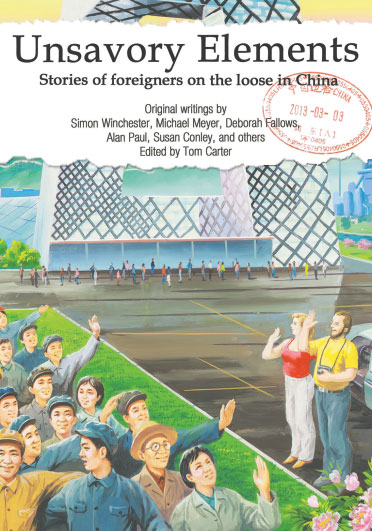
Although other anthologies have featured outstanding journalism about China by Western writers, Carter's collection is the first to focus on the wide-ranging experiences of foreigners living in China.
Most of the writers, whom Carter jokingly refers to as "refugees of boredom," arrived in China not as a result of business opportunities but because they simply wanted an adventure. As a result, the voices in Unsavory Elements are uncharacteristically colorful. In "Refrains from Wasterfur Scarcity," former Peace Corps volunteer Matt Muller voraciously describes his sexual attraction to a Chinese teacher in Chenzhou.
Carter, for example, responded to a Craig's List advertisement for a teaching job in China that proved non-existent. He stayed, and eventually began taking photographs on his travels around China. CNN Travel described his 2010 photography book China: Portrait of a People as "beautiful and groundbreaking".
Dan Washburn, who founded the popular website Shanghaiist and is currently working on a book for One World Publications about the development of golf in China, noted that for most Chinese people interaction with foreigners remains relatively new. But rather than the deep mistrust one might expect, he most often found Chinese people to be incredibly generous, he said.
In his essay "Every Thousand Years", Washburn recounts his fact-finding visit to the village hometown of the professional golfer Zhou Xunshu. He was welcomed into Zhou's family home, and only realized after enjoying their generosity for days that they essentially had no idea who he was or why he was there.
Washburn's essay reflects a theme of stories found accidentally, Carter said.
"Most of the stories herein were incidentally born from other experiences and intentions, and I think it's an apt metaphor for all the possibilities and opportunities than can be found in China," he said.
Kaitlin Solimine, whose moving essay "Water, for Li-Ming" describes her relationship with a Chinese woman who hosted her during a high school exchange program, believes that the collection is a welcome antidote to tropes often featured in Western media coverage about China.
"You see stories about ethnic issues, or about that little girl getting run over, for example, that are repeated over and over again as evidence that China has changed for the worse," she said. "I still firmly believe that you can't make generalizations, but I know that my experiences in China have really touched me. It's difficult for foreigners though, because you get disappointed when you experience genuine kindness and expect it to grow into something lovely, and then you hear stories about corruption and pollution and it can be disheartening. That still exists, but these experiences of love and warmth exist too."
Foreigners also grapple with their permanent outsider status, she said. Even though she feels completely at home with the family that hosted her in China, she will always be a "laowai" (foreigner) as soon as she steps outside the doors of their home, she said.
Carter also described the anxiety of being an outsider in a country one considers home. Fortunately, China also provides ample opportunity for re-invention, he said. Almost every writer in the collection forged a second career after arriving abroad.
(China Daily USA 07/26/2013 page11)
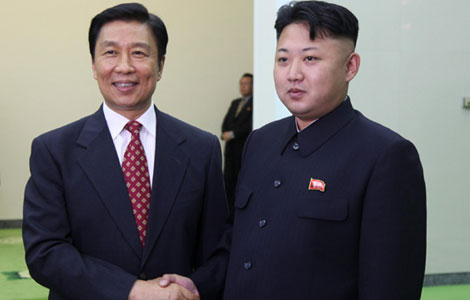
 Top DPRK leader meets Chinese vice-president
Top DPRK leader meets Chinese vice-president
 US does not plan decision on Egypt coup
US does not plan decision on Egypt coup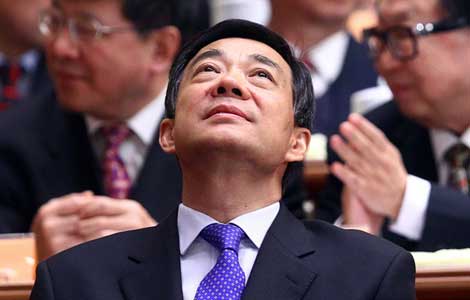
 Bo Xilai indicted for corruption
Bo Xilai indicted for corruption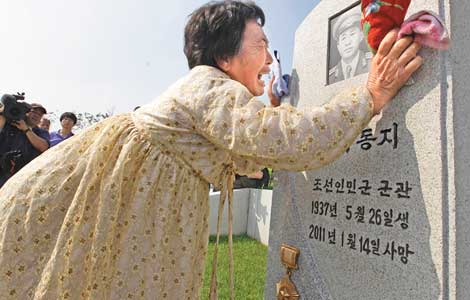
 Korean War veterans return to peninsula
Korean War veterans return to peninsula
 Tourist safety a priority in S China Sea
Tourist safety a priority in S China Sea
 Death toll in Spain train crash rises to 77
Death toll in Spain train crash rises to 77
 Royal baby named George Alexander Louis
Royal baby named George Alexander Louis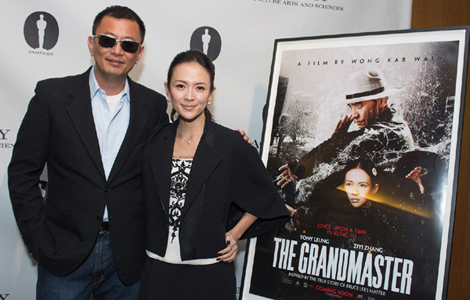
 'The Grandmaster' takes center stage
'The Grandmaster' takes center stage
Most Viewed
Editor's Picks

|

|

|

|

|

|
Today's Top News
Apple posts charger warning
Scholars provide a tour 'around the world'
GM says weakness in Asia leads to profit drop
Syrian rebels ask Kerry to send US arms quickly
Flights over sea 'routine training'
US does not plan decision on Egypt coup
Congress approves NSA spying program
Japanese PM unlikely to visit Yasukuni Shrine
US Weekly

|

|








